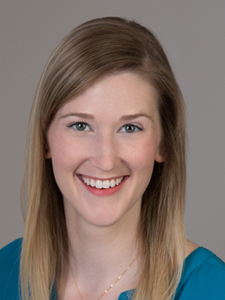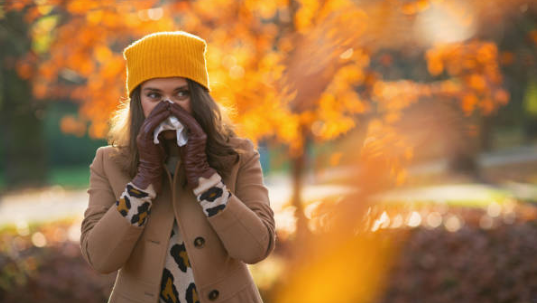by Hallie OBranovic, MSN, APRN, NP-C
Allergy, Asthma, and Immunology
Boulder Medical Center
Fall is a beautiful time of year in Boulder County, but for many residents, it also brings the challenge of seasonal allergies. Also known as seasonal allergic rhinitis, fall allergies affect millions of children and adults yearly. The good news is that you can reduce symptoms and enjoy the season with the right prevention and treatment strategies.
Causes of Fall Allergies
Boulder County’s biggest culprits behind fall allergies are ragweed pollen and mold spores. Ragweed is the leading trigger during late summer and fall, spreading pollen for miles and remaining in the air from late August through October. At the same time, fallen leaves and other decaying vegetation create the perfect environment for mold to grow, releasing spores that can easily become airborne and aggravate allergy symptoms.
Common Signs of Fall Allergies
Fall allergy symptoms can resemble a cold but typically last longer. Look for:
-
- Runny or congested nose
- Sneezing
- Itchy, watery eyes
- Post-nasal drip
- Persistent coughing
How to Manage Fall Allergies
There are three main ways to target allergy symptoms: avoidance, medications, and immunotherapy:
-
- Limit allergen exposure
- Stay indoors on high-pollen days.
- Keep windows closed and rely on air conditioning.
- Wear a mask when raking leaves or cleaning debris.
- Over-the-counter medications
- Antihistamines (such as loratadine or cetirizine) help with sneezing and itching.
- Nasal corticosteroids (like fluticasone or triamcinolone) target inflammation and congestion.
- Astepro® (azelastine) is now available over the counter after years as a prescription-only medication. This fast-acting nasal spray works directly in the nose to relieve congestion, sneezing, and runny nose.
- Try alternatives if one doesn’t work. Not every medication works the same for everyone. That’s because different products target different pathways in the allergic response:
- Antihistamines block histamine, reducing itching and sneezing.
- Nasal corticosteroids reduce swelling in the nasal passages.
- Nasal antihistamines like Astepro may work better for congestion and runny nose.
- Improve Indoor Air Quality
- Use a HEPA filter in your vacuum and air purifier.
- Wash bedding in hot water weekly.
- Consider Immunotherapy
- For long-term relief, allergy shots, sublingual tablets, or drops can help retrain your immune system to become less reactive to allergens
- Limit allergen exposure
When to See an Allergist
Allergies can be tricky to pin down because everyone reacts differently to environmental triggers. For children, allergy symptoms often overlap with asthma, making breathing concerns more prominent. Adults, on the other hand, may experience more sinus pressure, post-nasal drip, or fatigue. Because symptoms vary widely, what seems like a simple cold or lingering cough could be allergy-related.
If your allergy symptoms are severe, persistent, or not improving with over-the-counter treatments, it may be time to see a specialist. Allergists can perform testing to pinpoint triggers and create a personalized treatment plan for children and adults.
Meet Our Allergy & Asthma Specialists
 Katherine McCormack, MD – Dr. McCormack, board-certified in Allergy, Asthma & Immunology, treats environmental and food allergies, asthma, eczema, and immune system disorders. In addition to her broad expertise, she has specialized training in pediatrics, allowing her to provide comprehensive care for children and adults.
Katherine McCormack, MD – Dr. McCormack, board-certified in Allergy, Asthma & Immunology, treats environmental and food allergies, asthma, eczema, and immune system disorders. In addition to her broad expertise, she has specialized training in pediatrics, allowing her to provide comprehensive care for children and adults.
 Hallie OBranovic, NP-C—Hallie is a highly skilled nurse practitioner specializing in allergy and asthma care. She works closely with patients to develop personalized treatment plans. She focuses on patient education and preventive strategies to help individuals and families effectively manage their allergies and respiratory conditions.
Hallie OBranovic, NP-C—Hallie is a highly skilled nurse practitioner specializing in allergy and asthma care. She works closely with patients to develop personalized treatment plans. She focuses on patient education and preventive strategies to help individuals and families effectively manage their allergies and respiratory conditions.

